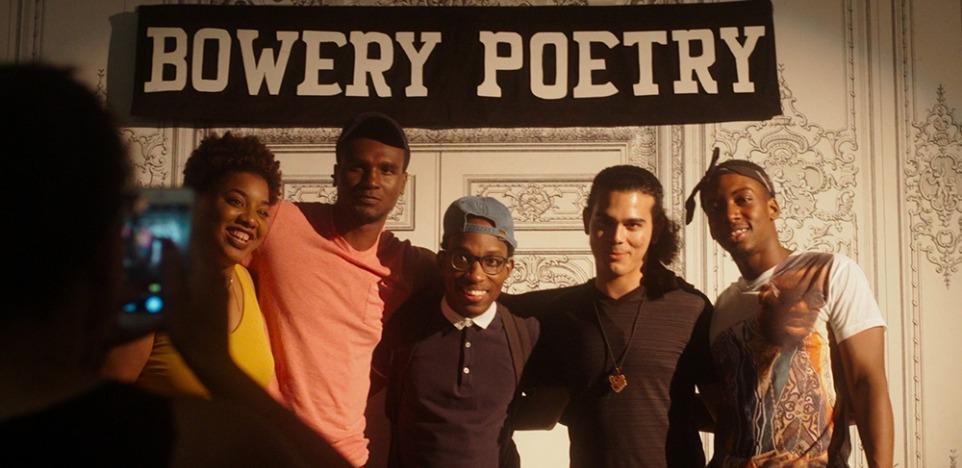DON’T BE NICE
(director: Max Powers; cinematographer: Peter Eliot Buntaine; editors: David Lieberman/Nathan Punwar; music: Khari Mateen; cast: Ashley August, Timothy DuWhite, Joel Francois, Sean MEGA Desvignes, Noel Quińońes, Jon Sands, Lauren Whitehead; Runtime: 95; MPAA Rating: NR; producers: Nikhil Melnechuk/Cora Atkinson; Juno Films; 2018)
“Slam poetry makes the spoken word an emotional sport for a young generation of aspiring poets.“
Reviewed by Dennis Schwartz
Max Powers in his debut as a feature film director chronicles the Bowery Slam Poetry Team, made up of five African-American, Afro-Hispanic and queer poets (Ashley August, Timothy DuWhite, Joel Francois, Sean MEGA Desvignes, Noel Quińońes), in their 20s, who are preparing for competition at an East Village location in Manhattan for The National Slam Competition in Atlanta, Georgia (It was filmed during the summer of 2016). Out of 100 contestants, 5 will be selected to represent the team by the Manhattan-based judges.
Slam poetry makes the spoken word an emotional sport for a young generation of aspiring poets, which might be a good thing for certain aspiring artists but I don’t think it’s everybody’s cup of tea. It urges the poets to be authentic about their thoughts, remain vulnerable and bring on new concepts even if it means challenging the old acceptable ways.The coaches are the black woman Lauren Whitehead and the white man Jon Sands.The gentle but persuasive Lauren uses the term “Don’t Be Nice” as a credo for her team of poets, as she says to “be nice” is to stay on the surface of things, to keep the status quo and for blacks to only be what white culture demands of them. She gently tells the poets to dig within to express their true feelings.
The team of poets write their centerpiece poem as a celebration of joy. It tells of tackling police violence and of being proud of their black culture.
The gist of the film fiercely observes the poets at their intense sessions, as the tension builds to the main event in10 weeks.
The young poets are viewed as modern urban thinkers, trying to make sense of themselves and their surroundings and compete with other poets that might have different ideas and visions.They are urged by their coaches to push the boundaries of their capabilities until they reach their emotional core, a concept that brings out some resistance from a few.
Their group poem Google Black goes like this:
No more editing blackness out of our own art.
No more spoon feeding the oppressor.
No more poems, going gently, into the bleach.

REVIEWED ON 10/21/2019 GRADE:
B-
https://dennisschwartzreviews.com/